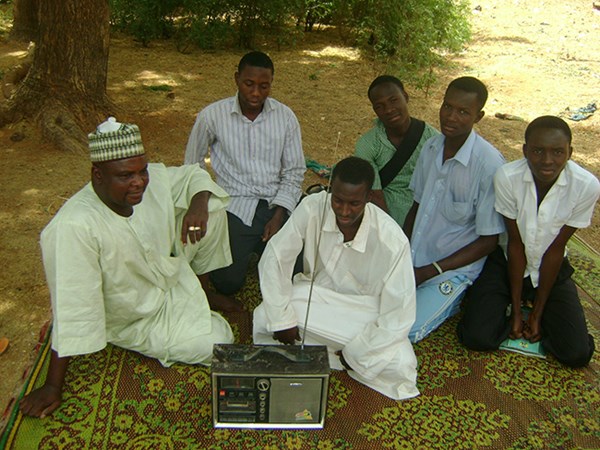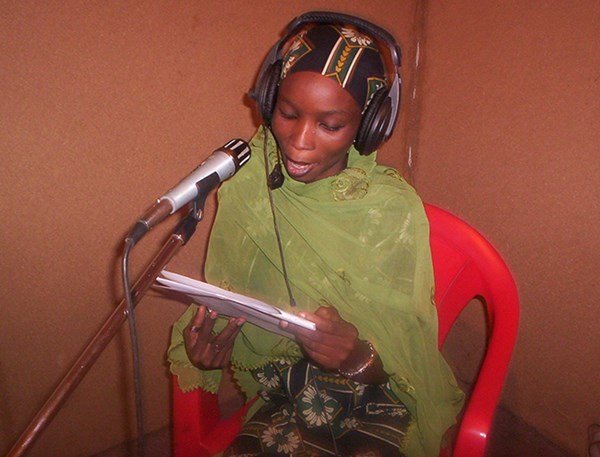SOUTH BURLINGTON, VT., Oct. 1, 2014 (GLOBE NEWSWIRE) -- This September, the International Journal of Population Research published an article looking at a unique aspect of behavior change relating to family planning and reproductive health: how much did those changes rely on perception of gender norms?
"Gender and Reproductive Outcomes: The Effects of a Radio Serial Drama in Northern Nigeria" was written and researched by staff at Population Media Center (PMC), an international, nonprofit organization that strives to improve the health and well-being of people around the world through the use of entertainment-education.
"PMC uses serial dramas, often known as soap operas, to address health and social issues within a community," explains Fatou Jah, PMC's Research Associate and lead author on the article.
Jah and her colleagues set about researching the impact of a particular PMC drama that aired in four states in northern Nigeria. Ruwan Dare ("Midnight Rain") was 208 episodes long and aired for two years, July 2007-2009, in Hausa, the most widely spoken language in that area.
"The most illuminating finding," says Jah of the study, "was that all 12 reproductive health outcomes were positively impacted by many of the gender predictors. This can help other development professionals and other researchers because it reiterates the connection between perceived gender roles and the impact of those norms on uptake of behaviors important for reproductive health and family planning."
In the process of analyzing this connection, the article articulates the impacts of Ruwan Dare on reproductive health and family planning behaviors, looking across a number of measures, as well as Ruwan Dare's impact on gender norms.
"This is an important understanding for everyone working on these issues," says Missie Thurston, PMC's Director of Marketing and Communications. "We hope that this helps other behavior change communications organizations that use mass media understand previous results through this new lens, and we certainly hope that this information helps us and others maximize impact and resources in the future."
The International Journal of Population Research is a peer-reviewed, open access journal that accepts approximately one quarter of submissions. The article authors also included Scott Connolly, PMC's Director of Research, Kriss Barker, PMC's Vice President of International Programs, and William Ryerson, PMC's President.
ABOUT POPULATION MEDIA CENTER (PMC):
Population Media Center is a nonprofit, international nongovernmental organization, which strives to improve the health and well-being of people around the world through the use of entertainment-education strategies, like serialized dramas on radio and television, in which characters evolve into role models for the audience for positive behavior change. Founded in 1998, PMC has over 15 years of field experience using the Sabido methodology of behavior change communications, impacting more than 50 countries around the world. www.populationmedia.org
Photos accompanying this release are available at:
http://www.globenewswire.com/newsroom/prs/?pkgid=28082
http://www.globenewswire.com/newsroom/prs/?pkgid=28083

